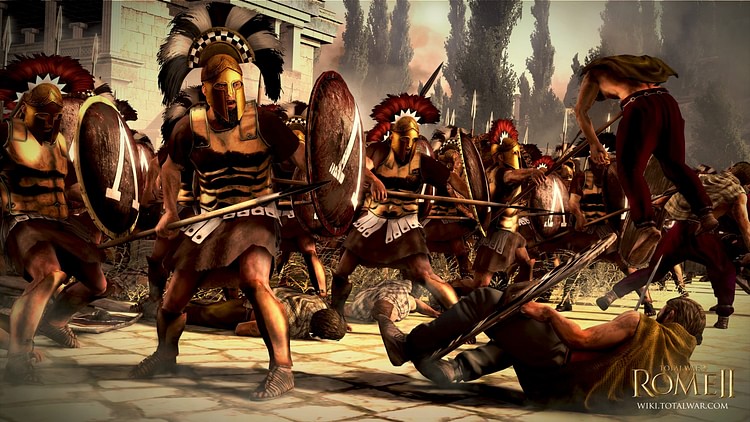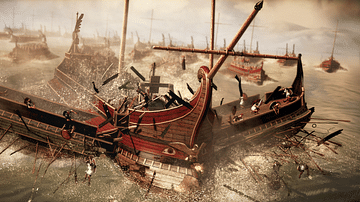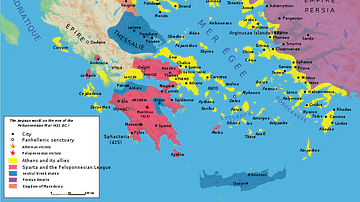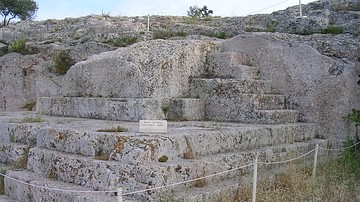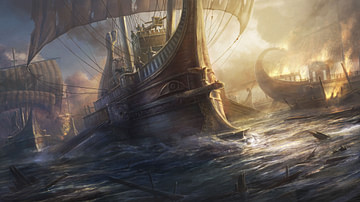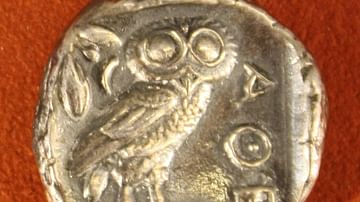![Greek Trireme [Artist's Impression] (by The Creative Assembly, Copyright) Greek Trireme [Artist's Impression] (by The Creative Assembly, Copyright)](https://www.worldhistory.org/img/r/p/500x600/4650.jpg?v=1699270205)
Lysander (d. 395 BCE) was a Spartan statesman and general who famously defeated the Athenian navy at the Battle of Aigospotamoi in 405 BCE, which finally won the Peloponnesian War. Lysander gained a reputation for a fiery personality, daring strategies, and a ruthless treatment of prisoners and subject cities. The Spartan's harsh policies in wider Greece in the aftermath of the Peloponnesian War ultimately brought his downfall. Unpopular at home and across Greece, he was killed by a Theban force in 395 BCE in the first year of the Corinthian Wars. Lysander is the subject of one of Plutarch's Lives biographies.
Early Life
Not very much is known about Lysander's early life except that his father was Aristokritos and that he belonged to the Heraclid clan of Sparta. We also know that he was relatively poor and needed financial help to complete his education and military training. When he became an admiral (nauarchos) in c. 408 BCE, Lysander was given the task of persuading the Persian king Cyrus the Younger to give aid to the Spartans in their war against Athens and her Delian League allies. In this mission, and in gaining Cyrus' friendship too, he was successful.
The Peloponnesian War & Naval Victories
Lysander's first notable victory was at the naval Battle of Notion on the coast near Ephesos in c. 407 BCE. There he defeated Alcibiades' deputy Antiochos with a superior deployment of his ships. The loss would cause the Athenians to dismiss their great general Alcibiades, charged with neglecting his duty in allowing a subordinate, and only a helmsman at that, in command of the fleet.
Lysander then established his reputation for daring tactics at the Battle of Aigospotamoi on the Hellespont in 405 BCE. He had twice deliberately refused to engage his fleet of Persian-funded 200 ships with the larger Athenian fleet, and so they believed the Spartan was battle-shy. On the fifth day, the Athenians were resting with their ships pulled on the shore, which was a necessary procedure to periodically dry out the hulls and prevent water-logging of ancient ships. Lysander chose this moment to attack and overwhelmed the enemy, only eight Athenian ships managed to escape the debacle. The Spartan then executed his 3,000 prisoners without mercy. Victory for Sparta finally brought an end to the Peloponnesian War which had started back in 431 BCE.
Lysander then sailed to the Piraeus and, with his ships, cut off Athens from its port in the spring of 404 BCE. He sent word that any Athenian caught outside the city would be killed without exception and so fiendishly ensured Athens was packed with as many mouths as possible before he set up his blockade. After a long siege and on the verge of starvation, the city finally surrendered and a new government was established there, the Thirty Tyrants. Resisting the Corinthian and Theban call to destroy Athens completely, Lysander instead insisted the Long Walls fortifications were ripped down, all trireme warships save a token fleet were handed over, and heavy tribute extracted. A Spartan garrison was then left to protect their interests. Lysander's great victory was commemorated via dedications, the minting of commemorative coins, and by himself when he commissioned a new monument, the 'Monument of the Navarchs' at the sacred site of Delphi. In a rather vain record of his achievements the monument of bronze sculptures depicted the Olympian gods and Lysander, the only mortal on show, being crowned by Poseidon.
Political Manoeuvring
Sparta and Lysander consolidated their gains in the Peloponnesian War by promoting oligarchic governments (decarchies) in various Greek cities, also extracting tribute from them, as it continued to do from its own allies in the Peloponnesian League. However, the lack of Spartan experience in diplomacy and city management, coupled with their overly oppressive leadership soon brought unrest. Even traditional allies, Corinth and Thebes, began to worry about Sparta's hegemony of Greece.
The unprincipled and unpopular Lysander, who was said to "cheat boys with dice, but men with oaths" (Lysander, 293), also drew personal criticism from his own people as he lived a life of luxury in Anatolia. The austere Spartans were also less than impressed with Lysander's growing personality cult, especially prevalent on the island of Samos. There he was worshipped as a god, an unprecedented occurrence for a living Greek. Suspecting Lysander might become more ambitious and establish his own empire, the Spartans called him home and stripped him of his titles, or rather, they were not renewed. This caused a rumpus between Lysander and his old protégé and lover (erastes), the Spartan king Agesilaos in 396 BCE. Sending his rival as far as possible from Sparta, the king commissioned Lysander to command an army on the Hellespont. Here Lysander managed to persuade the Persian satrap Spithridates to join his own forces.
Then in 395 BCE Corinth formed an alliance with Argos, Boeotia, Thebes, and Athens to fight Sparta. Lysander, brought back to meet this threat, attacked Boeotia and so ignited a war with Thebes, setting off the nine-year Corinthian Wars. Waiting, or rather not-waiting, to rendezvous with a Spartan army led by Pausanias II (the other king of Sparta), Lysander was killed by the Thebans as he attacked the walls of Hallartos in central Boeotia. According to Plutarch his body was taken and buried in Panope on the road from Chaeronea to Delphi and a monument set up to mark the spot.
The result of the Corinthian Wars was the 'King's Peace' where Sparta ceded its empire (for which it, in any case, lacked the necessary bureaucratic apparatus to manage properly) to Persian control but Sparta was left to dominate Greece. However, trying to crush Thebes, Sparta lost the crucial battle of Leuctra in 371 BCE against the brilliant Theban general Epaminondas. Thebes then annexed parts of Messenia and Sparta became, thereafter, only a second-rate power.
After Lysander's death his political enemies claimed they had found documents amongst his personal effects which indicated that he had planned to replace Sparta's hereditary dual-king system with an elected monarch. Never much-admired at the best of times, Plutarch sums up Lysander's reputation thus,
Lysander…seemed an equivocal and unprincipled character, and a man who disguised most of his actions in war with various forms of deceit…He laughed at those who insisted that the descendants of Heracles should not stoop to trickery in warfare and remarked, 'Where the lion's skin will not reach, we must patch it out with the fox's' (Lysander, 293)
